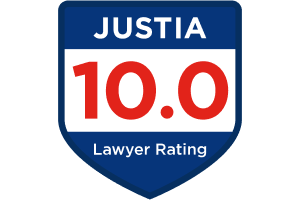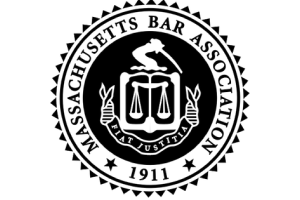Suspended license offenses
Operating on a Suspended License in Massachusetts: What You Need to Know

At Erkan & Sullivan, PC, we understand that life doesn’t pause when your driver’s license is suspended. However, operating a vehicle under suspension in Massachusetts is a serious offense that can lead to severe penalties. If you’re facing charges, it’s crucial to know your rights, the potential penalties, and the defenses available to you.
Understanding the Charge
In Massachusetts, driving with a suspended or revoked license is prohibited under Massachusetts General Laws Chapter 90, Section 23 (M.G.L. c.90 § 23). This statute makes it illegal to operate a motor vehicle on any public way while your license or right to operate is suspended or revoked.
Potential Penalties
- Operating After Suspension: A first offense is punishable by up to ten days in the county jail and a fine of $500–$1,000, with a mandatory 60-day license loss.
- Repeat offenses: A second or subsequent offense is punishable by at least 60 days in jail, and up to one year in jail, a $1,000 fine, and a mandatory 60-day license loss.
- Operating After Suspension as a Habitual Traffic Offender: Being designated a habitual traffic offender under M.G.L. c.90 § 22F results from accumulating multiple traffic violations. Operating a vehicle after such a suspension is punishable by up to 2 years in the county jail and a fine between $500 and $5,000.
- Operating After Suspension for OUI (Operating Under the Influence): the 60 day sentence is mandatory without the possibility of parole. The fine jumps to between $1,000 and $10,000.
- Operating After Suspension After Serious or Fatal Accident: This provision is triggered by convictions for OUI Serious Bodily Injury (G.L. c. 90, section 24L), vehicular homicide (G.L. c. 90, section 24G), or vehicular manslaughter (G.L. c. 265, section 13 1/2). If you are caught driving after one of these offenses, you face a penalty of a up to 2 1/2 years in jail. The first year of that sentence is a mandatory minimum, meaning there is no eligibility for parole. The sentence is consecutive to any other sentence you are facing. There is also a fine between $2,500 and $10,000 and a license loss of one year.
Relentless defense
As you can tell by the range of penalties, operating after suspension charges can range in consequence from a slap on the wrist to a devastating sentence. As former prosecutors with over forty years of combined experience, regardless of the severity of the offense, we will navigate your case toward the most favorable result possible.
Negotiated dismissal
Oftentimes, when dealing with simple license suspension charges, even repeat offenses, we can negotiate with prosecutors for dismissal of these charges. People’s licenses can be suspended for a variety of minor or mundane reasons, including failing to pay a ticket or failure to pay taxes or child support. I think some prosecutors are also beginning to understand that suspended license charges are closely associated with economic hardship rather than unsafe driving. In those circumstances, criminal prosecutions can result in additional fines and convictions that can make securing employment difficult, creating a repeating cycle where the driver owes more and more money while at the same time being placed in a position where they are less and less able to pay. In those cases, we will work hard to convince prosecutors that the best way to ensure roadway safety and thriving communities is to let people get back on the road. The best way to do that is to agree to dismiss these charges.
An intermediate solution may also be to negotiate a continuance without a finding or “CWOF”. This is a special disposition in Massachusetts where the accused agrees there is enough evidence to support the charge, but the judge does not find him or her guilty. Instead, the case is continued for a period of time and sometimes on conditions like community service. If there are no problems during the continuance period, the case will be dismissed. In certain circumstances, this can be a great way to resolve these charges. Bear in mind that this type of disposition is not available for more serious forms of this offense, including driving after suspension for DWI or for an accident with serious or fatal injuries.
Defense through litigation
When the prosecutor decides to push forward with the case, having us on your side will stack the deck in your favor. Prosecution of these offenses are more complicated than many prosecutors understand. The prosecution needs to prove that your license was in-fact suspended, that you received notice of the suspension, and that you actually operated the vehicle.
Proof of notice
One area in which prosecutors frequently stumble is as to the proof of actual notice. We can often identify surprising gaps in the proof on this point. Whether there was an issue with proof of mailing, proof of address, or other administrative errors, we will capitalize on these deficiencies to weaken the government’s case.
Necessity defense
Another potential defense to an operating on a suspended license charge is the defense of necessity, sometimes referred to as the “competing harms” defense. The underlying premise behind this defense is that sometimes people need to make tough choices – including breaking the law – to avoid a more serious harm. There are a wealth of situations where this defense could apply to a charge of driving on a suspended license. For instance, if you needed to drive because a family member was experiencing a medical emergency. Another example might be if you were in imminent threat of attack and needed to drive to get away. In either of these circumstances, society’s interest in prosecuting the offense gives way to the greater harm which would occur if you did not drive.
Overcharging Operating after Suspension for OUI
The offense of driving after suspension for a DUI or OUI offense is extremely serious. It carries a minimum mandatory jail sentence. But prosecutors and police often misunderstand this charge. It only applies when a person’s license is suspended for an OUI offense. Notwithstanding this, police and prosecutors will erroneously bring this charge against someone whose license is suspended for a breath test refusal, or simply fails to pay a reinstatement fee after a DUI suspension has lapsed. Unfortunately, many lawyers are unaware of this nuance and set their clients up to serve mandatory jail sentences when that sentence does not apply to this type of case.
At bottom, every case is unique. The creative, diligent and experienced lawyers at Erkan & Sullivan, PC are uniquely equipped to find strategies best suited to the circumstances of your case.
How Erkan & Sullivan, PC Can Help
Navigating the legal system can be overwhelming, but you don’t have to do it alone. Our experienced attorneys will:
- Provide a Thorough Case Evaluation: We’ll examine all aspects of your case to identify weaknesses in the prosecution’s arguments.
- Develop a Tailored Defense Strategy: Based on the specifics of your situation, we’ll craft a defense aimed at reducing or dismissing the charges.
- Challenge Evidence and Procedures: We’ll scrutinize the legality of the traffic stop, arrest, and any evidence obtained to ensure your rights were not violated.
- Negotiate with Prosecutors: We’ll advocate for reduced penalties or alternative resolutions when appropriate.
- Represent You in Court: We’ll stand by your side throughout the legal process, providing expert representation and support.
Contact Us Today
Don’t let a charge of operating on a suspended license derail your life. Contact Erkan & Sullivan, PC for a confidential consultation. We’ll provide the guidance and representation you need to navigate this challenging time.





